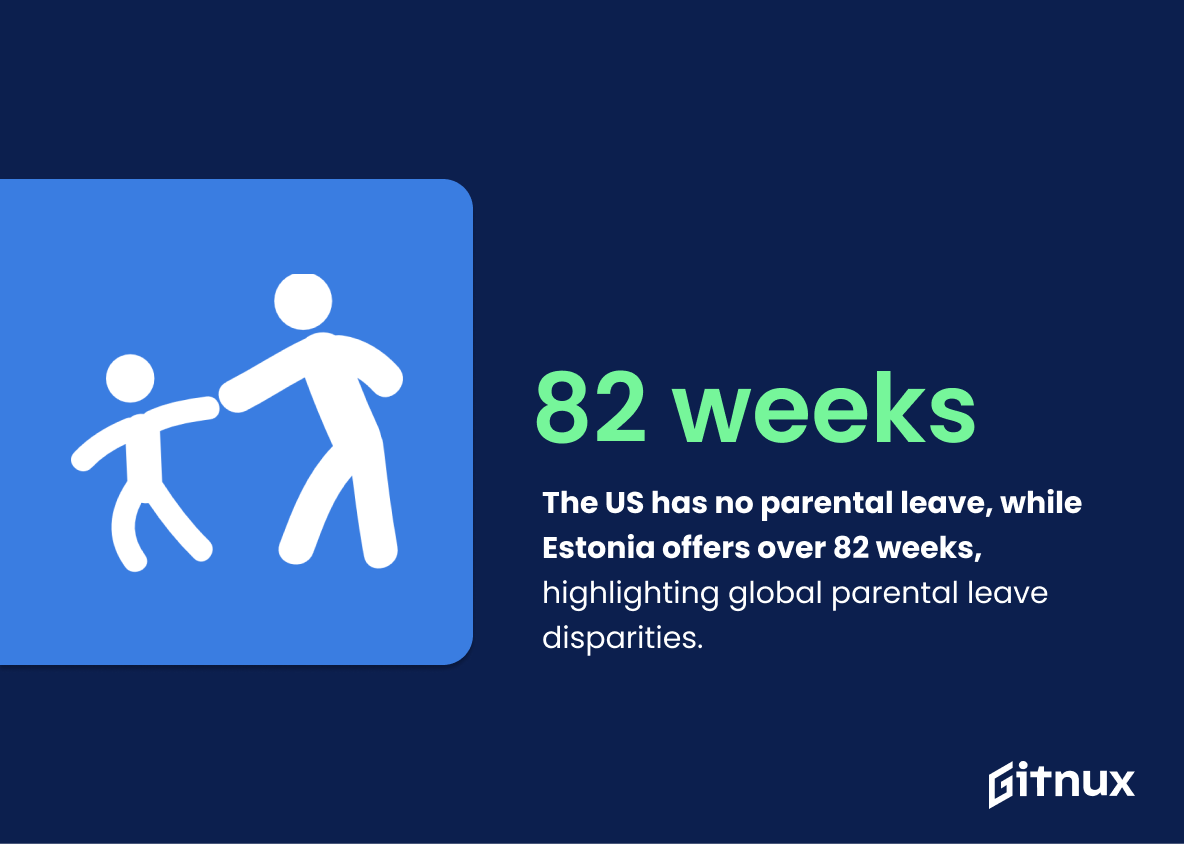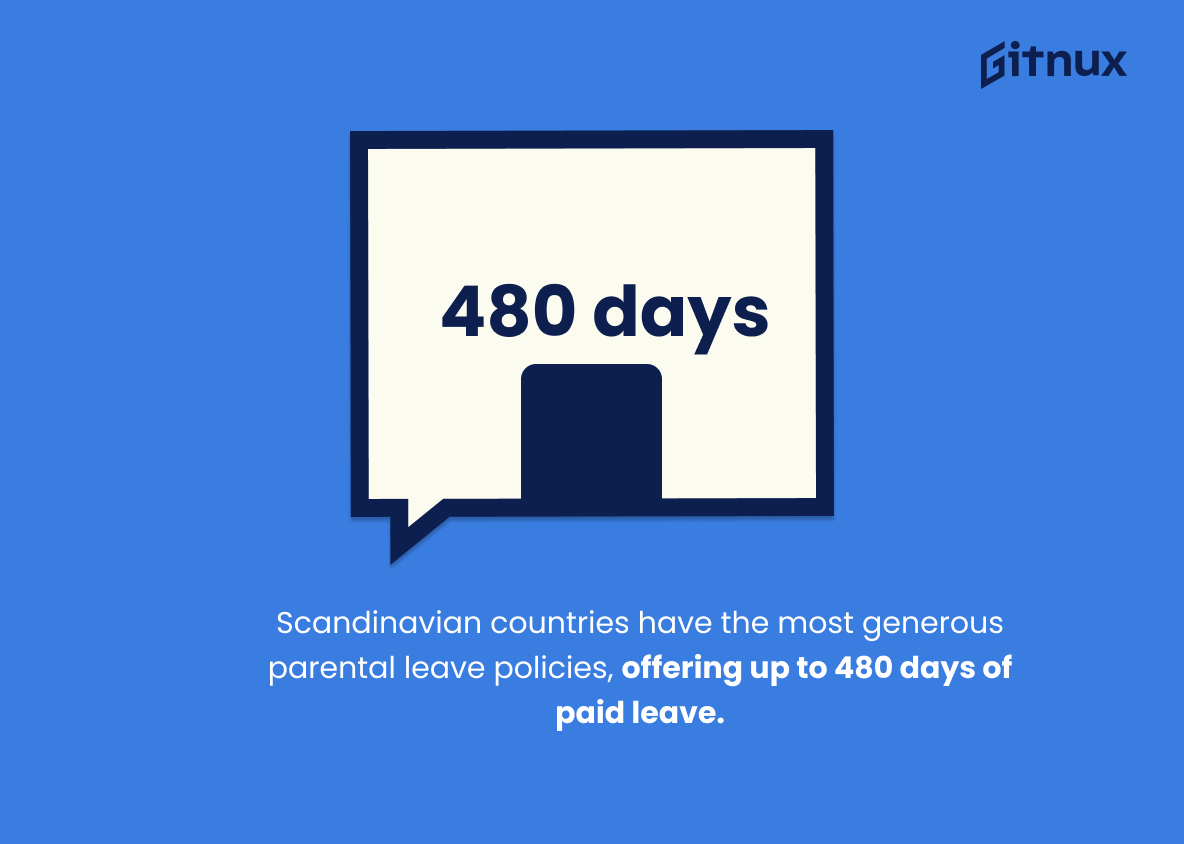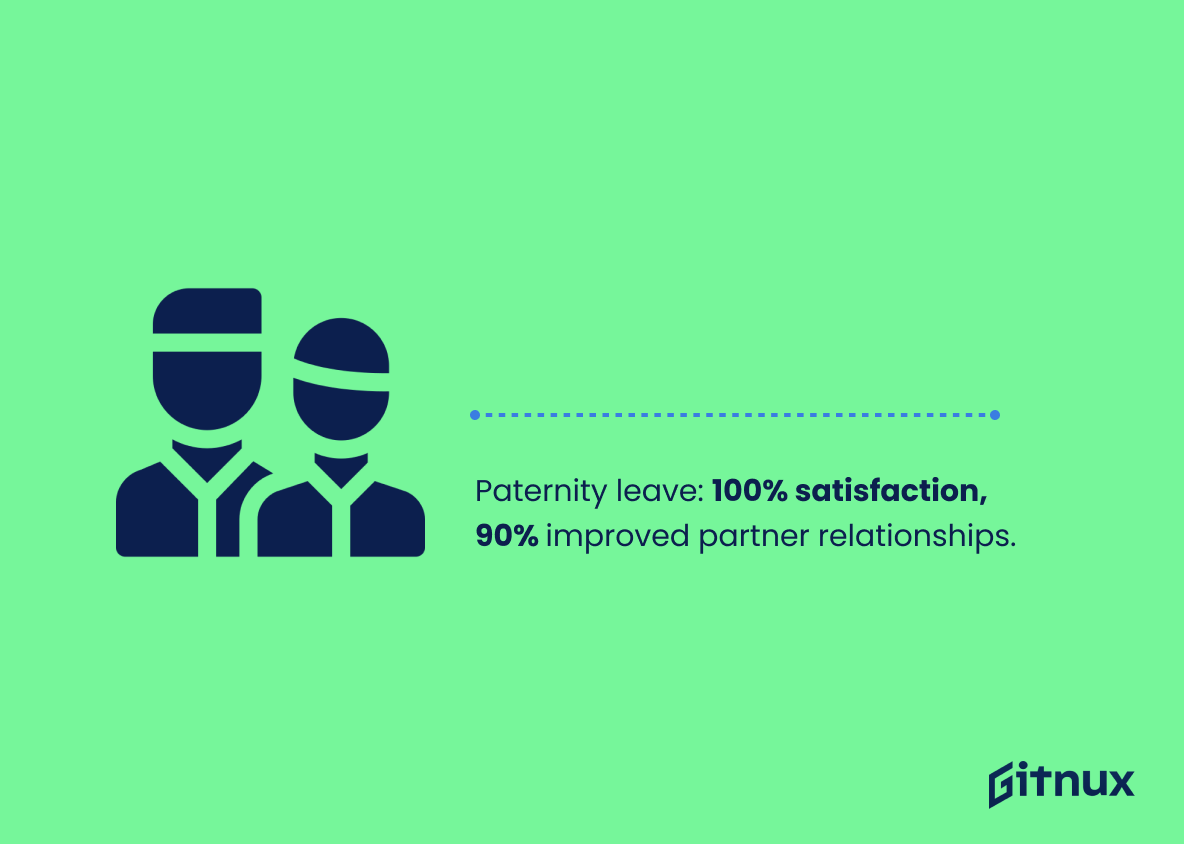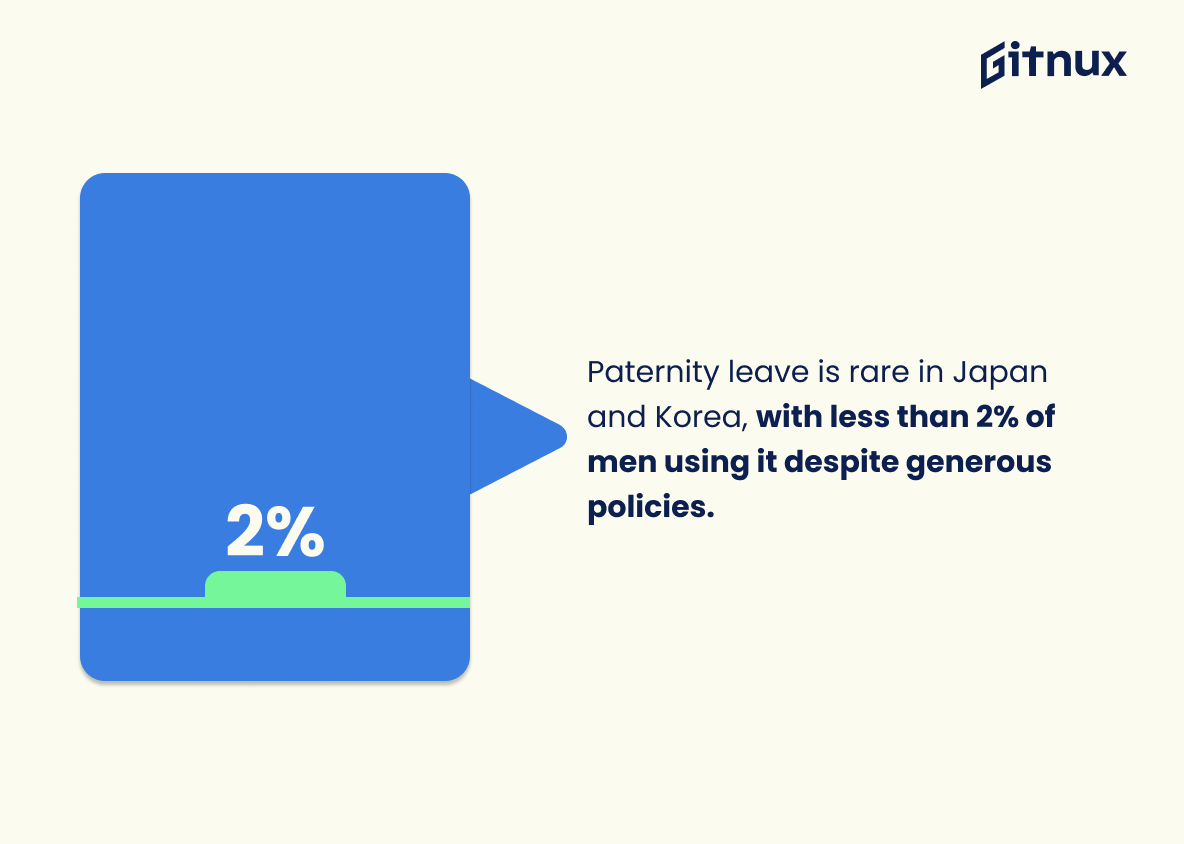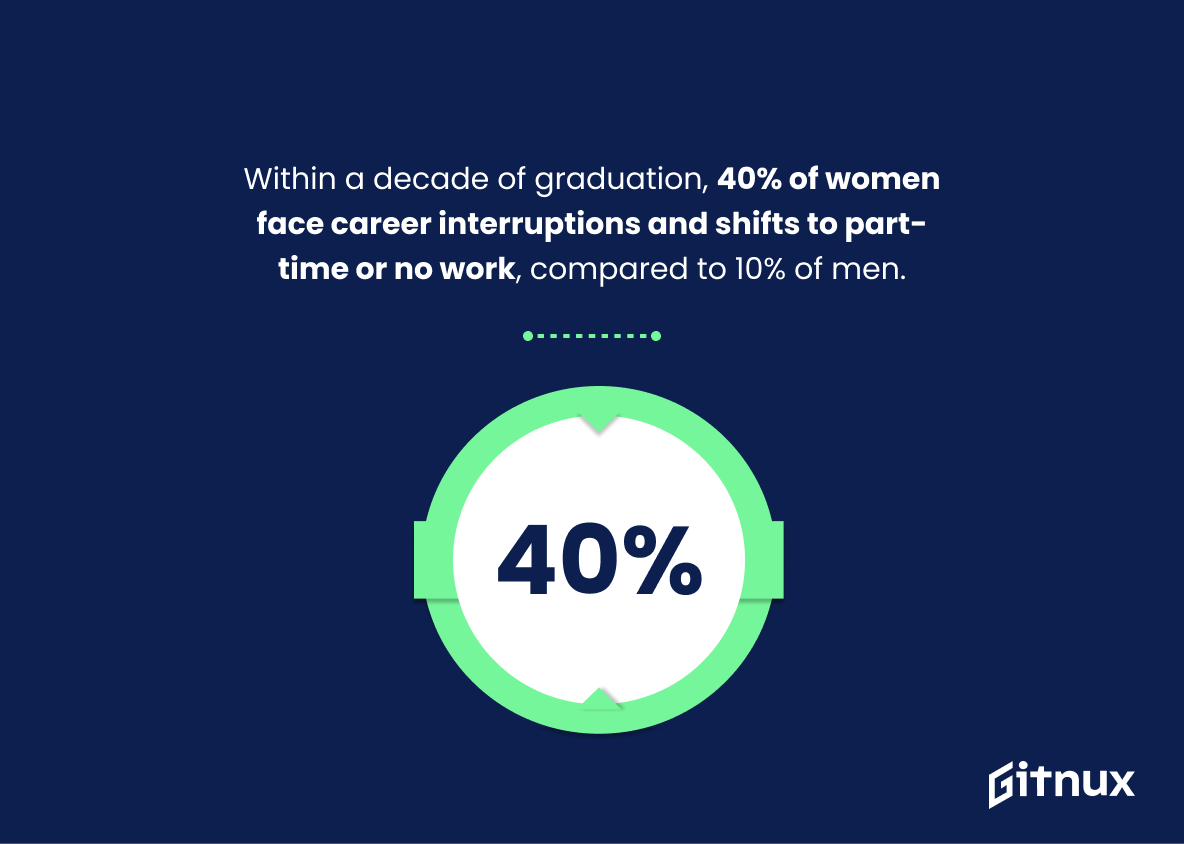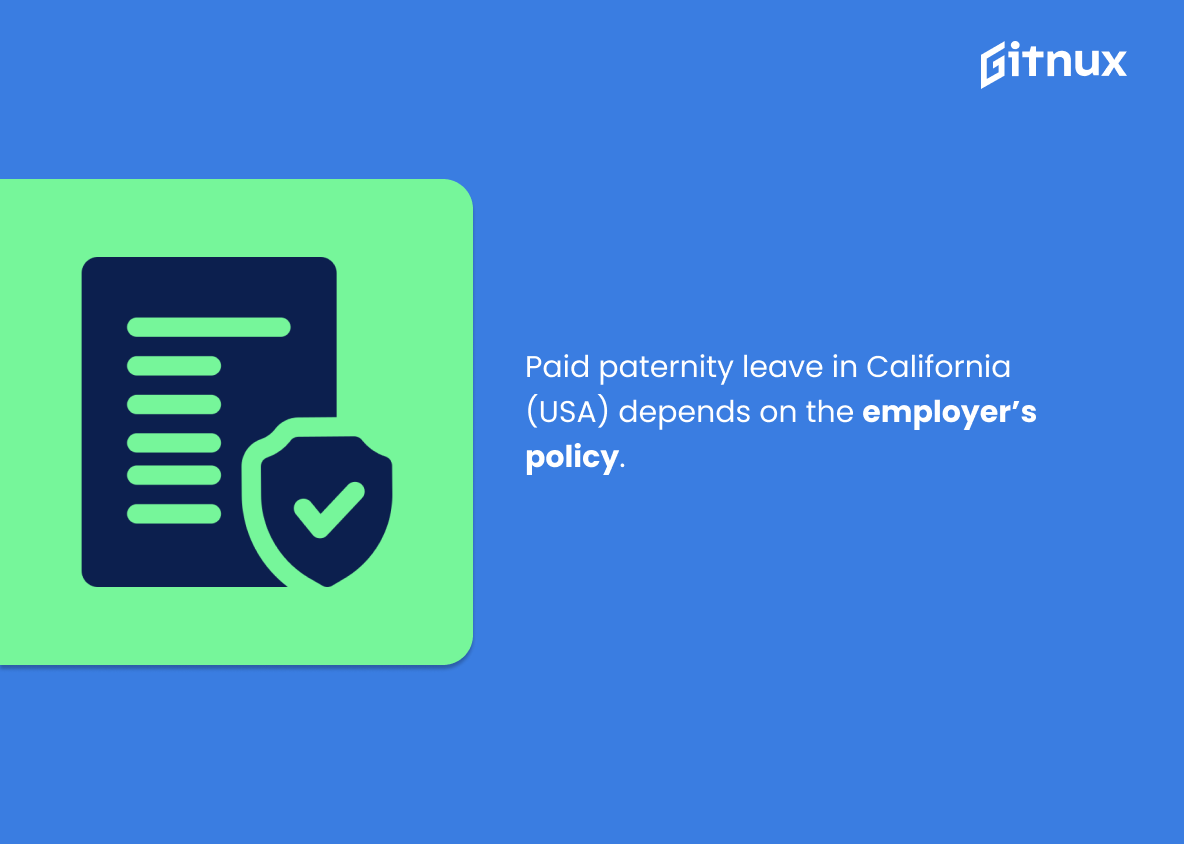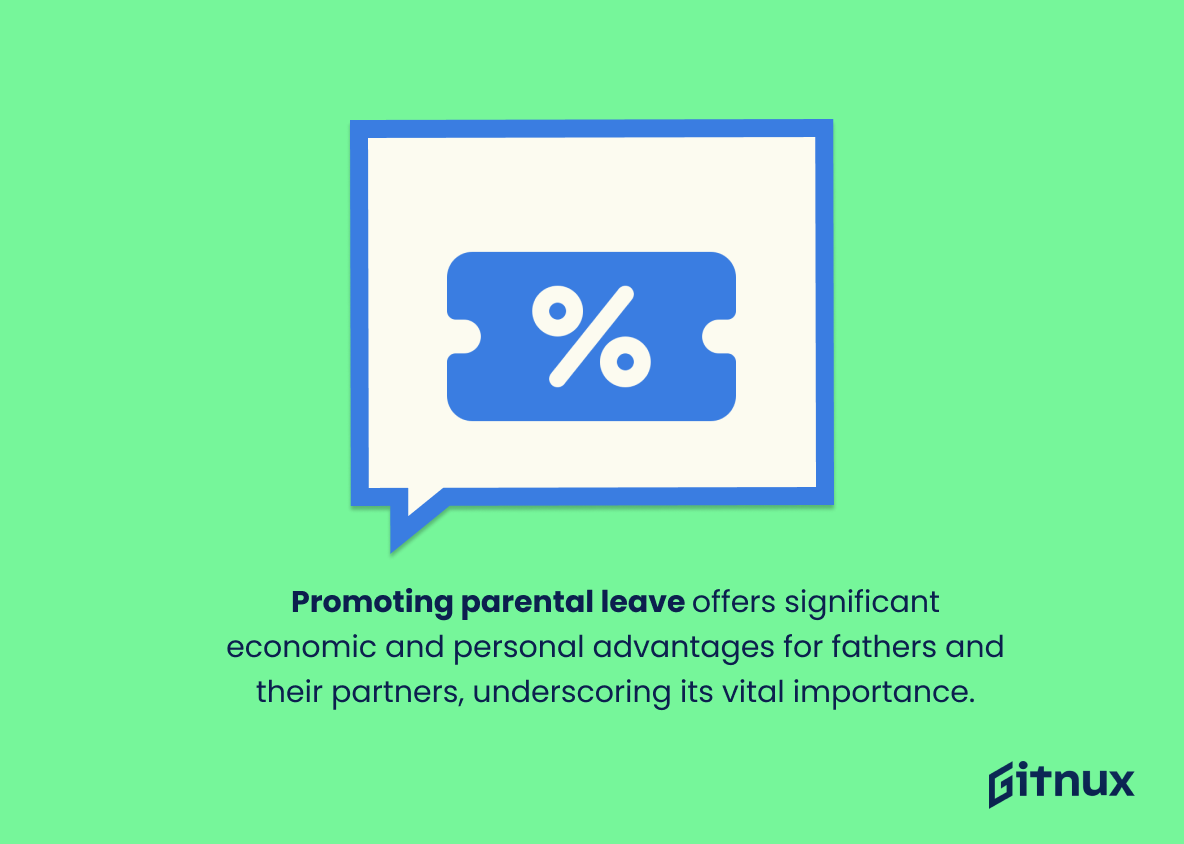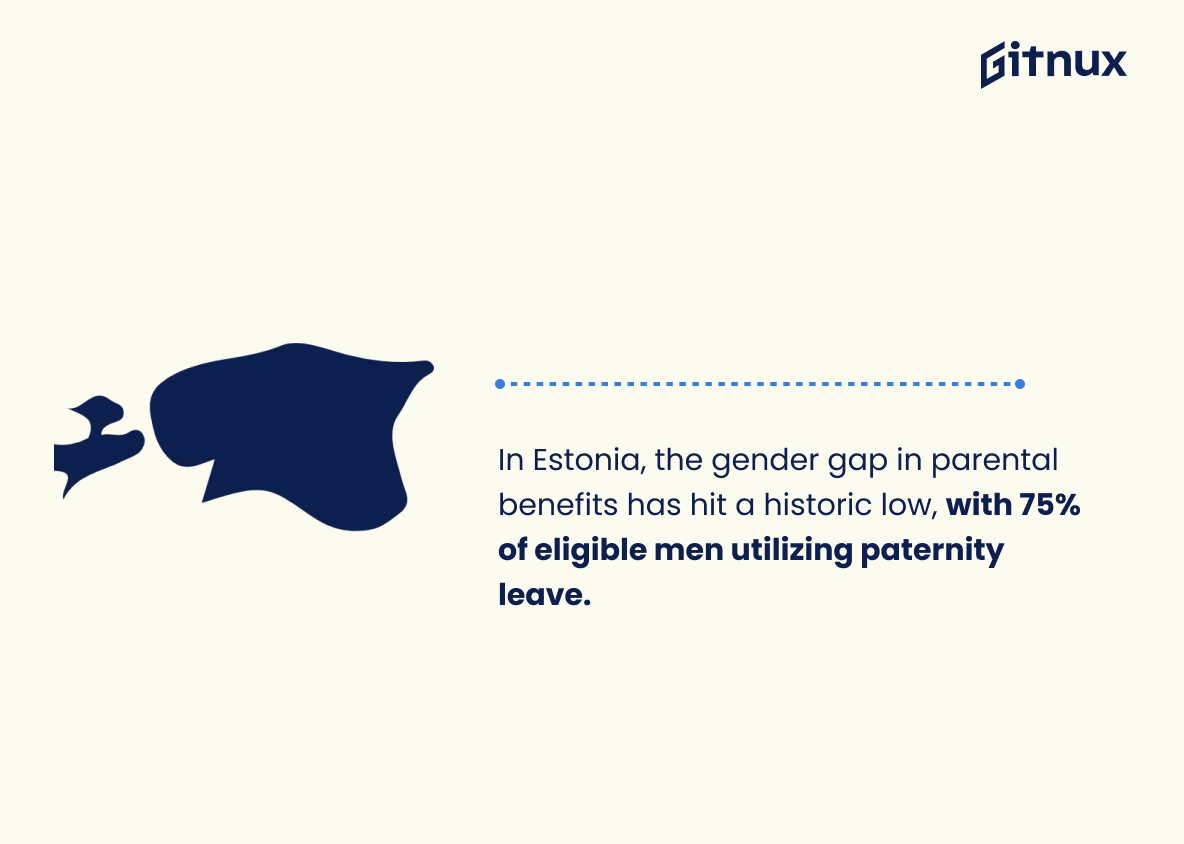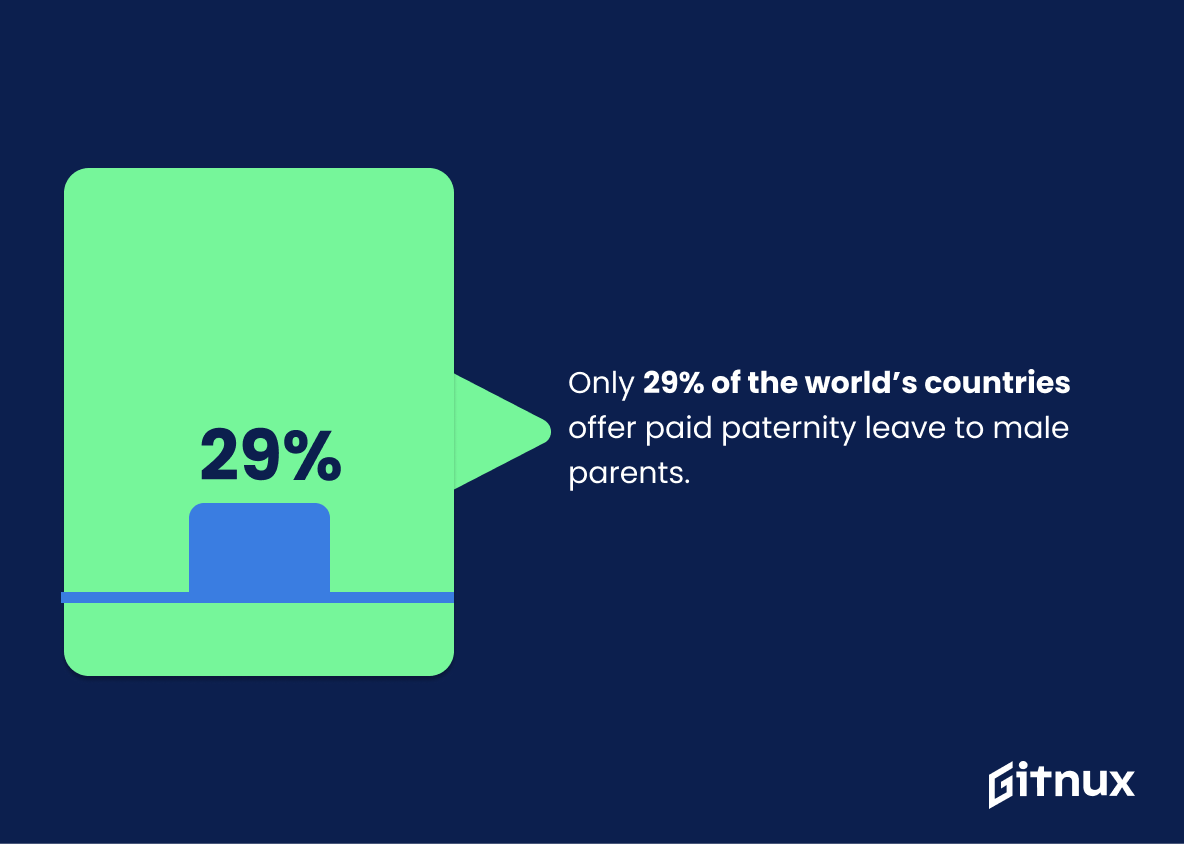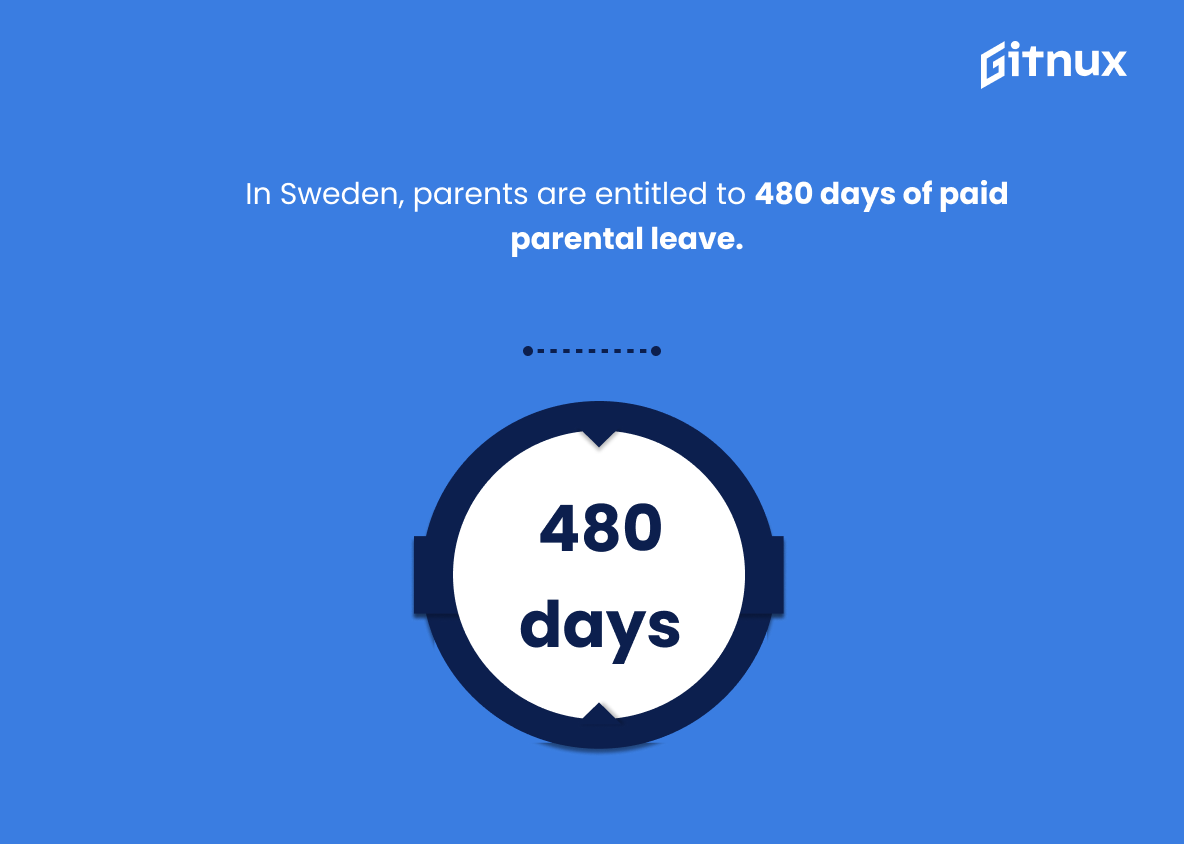Parental leave is an important part of family life, yet many parents struggle to access the leave they need. In this blog post, we’ll explore the latest parental leave statistics to better understand the current state of parental leave in the United States.
We’ll look at the types of leave available, the amount of time parents can take off, and the impact of parental leave on families. We’ll also consider the potential for change and how the current statistics could be improved. By the end of this post, you’ll have a better understanding of the current state of parental leave in the United States and how it affects families.
Parental Leave: The Most Important Statistics
Paternity leave is generally a positive experience, with 100% of men who took it being glad they did and 90% noticing an improvement in their relationship with their partner.
40% of women experience career interruption within 10 years of graduation, compared to 10% of men, and 40% of women stop working or work part-time 10 years after graduation, compared to 5% of men.
Parental Leave Statistics Overview
The US offers 0 weeks of parental leave, while Estonia offers 82 weeks or more, illustrating the vast differences in parental leave between countries.
An understanding of the parental leave policies of different countries is important, as the amount of leave offered can vary drastically. This is especially significant for parents who are considering relocating to a different country, as the amount of parental leave offered may be a deciding factor in their decision.
Scandinavian countries have the most generous parental leave policies, offering up to 480 days of paid leave.
Thus, countries with more generous parental leave policies are able to provide parents with more time to care for their children and bond with them. This allows parents to have more time to focus on their children’s needs and to be more involved in their lives. Additionally, it can help to reduce stress and anxiety for parents, as they have more time to adjust to their new roles.
Paternity leave is generally a positive experience, with 100% of men who took it being glad they did and 90% noticing an improvement in their relationship with their partner.
Taking paternity leave can be a rewarding experience, even for those who fear a career setback. It is important to recognize the benefits of paternity leave in order to encourage more men to take it.
Paternity leave is widely accepted in Sweden, but less than 2% of men use it in Japan and Korea, despite generous paid leave policies.
This highlights the need for cultural changes to accompany legislative changes in order to make meaningful progress in parental leave policies.
Longer legislated maternity leaves can have unintentional negative consequences on women’s careers, but potential solutions such as legislating parental leaves reserved for fathers only can help to protect female’s career.
Therefore, the current system of gender-neutral parental leave is not being utilized by men, and this is having a negative impact on women’s careers. By legislating parental leaves reserved for fathers only, it would help to ensure that women are not disproportionately affected by taking longer maternity leaves.
40% of women experience career interruption within 10 years of graduation, compared to 10% of men, and 40% of women stop working or work part-time 10 years after graduation, compared to 5% of men.
This highlights the difficulty that women have staying employed during pregnancy and returning to full-time work after childbearing, as well as the higher costs of female employment that may discourage firms from hiring female workers.
Paid paternity leave in California (USA) depends on the employer’s policy.
63% of countries provide guaranteed paid parental leave for fathers, yet the US is one of the few countries that does not guarantee paid maternity leave.
Studies have shown numerous benefits for the economy, for fathers, and for their partners when parental leave is supported, making it an important issue to address.
Estonia has one of the most generous parental leave and benefits systems in the world, offering 10 days of paternity leave and up to 435 days of parental leave, which has increased parental leaves taken in the country.
The gap between parental benefits for men and women has fallen to its lowest ever level in Estonia, with 75% of men entitled to paternity leave using it.
This shows that Estonia is leading the way in terms of parental leave equality, and that more men are taking advantage of the extended paternal leave.
Supplementary Statistics
Only 29% of the world’s countries offer paid paternity leave to male parents.
Fathers are often not given the same rights and opportunities as mothers when it comes to taking time off to care for their children. This inequality can have a lasting impact on families, as fathers are not given the same chance to bond with their children and be involved in their upbringing. It is an important statistic to consider when discussing the importance of parental leave and the need for more equitable policies.
The US is one of the few high-income countries without a federally mandated paid parental leave policy.
Despite being a high-income country, the US has yet to implement a federally mandated paid parental leave policy, leaving many parents without the financial security they need to take time off to care for their children.
In Sweden, parents are entitled to 480 days of paid parental leave.
It demonstrates the commitment of the Swedish government to supporting parents and families, and shows that they are willing to invest in the well-being of their citizens. This statistic is a testament to the value that Sweden places on family life and the importance of providing parents with the time and resources they need to care for their children.
The average length of paid maternity leave among OECD countries is 18.1 weeks.
This is a significant amount of time that allows parents to bond with their children and adjust to their new roles as parents. It also provides a much-needed break from work for new mothers, allowing them to recover from childbirth and adjust to their new lives. This statistic is a testament to the value that OECD countries place on the well-being of their citizens and their families.
93% of large US corporations offer maternity leave, but only 73% offer paternity leave.
Despite the progress made in recent years, there is still a long way to go in terms of providing equal opportunities for both mothers and fathers. This statistic is a call to action for employers to recognize the importance of paternity leave and to provide equal benefits for both parents.
58% of men and 80% of women take parental leave in Germany.
Women are more likely to take advantage of parental leave than men, which is a positive step towards closing the gender gap in the workplace. This statistic is also important in highlighting the need for more support for working parents, as well as the need for employers to create a more equitable environment for both men and women.
In Canada, parents can take up to 40 weeks of combined paid parental leave, with 15 additional weeks for the person giving birth.
By providing up to 40 weeks of combined paid parental leave, with 15 additional weeks for the person giving birth, Canada is ensuring that parents have the time and resources they need to properly care for their newborn. This is a powerful statement that speaks to the value Canada places on family and the importance of providing parents with the support they need to raise their children.
UK mothers are entitled to up to 52 weeks of statutory maternity leave, with 39 weeks paid.
This highlights the commitment of the UK government to supporting parents and families, and serves as a reminder of the importance of parental leave in creating a safe and secure environment for children to grow and thrive.
In Japan, parental leave policies allow for up to 52 weeks of leave, with 26 weeks paid at a maximum.
Japan is taking a progressive stance on parental leave, providing parents with a generous amount of time to bond with their newborns and adjust to their new roles as parents. This statistic is a testament to the importance of parental leave policies and the positive impact they can have on families.
New Zealand provides up to 26 weeks of paid parental leave.
This generous amount of paid leave provides parents with the opportunity to bond with their newborns and adjust to their new roles without having to worry about financial hardship. It also allows parents to take the time they need to recover from childbirth and establish a healthy routine for their family. This statistic is a powerful reminder of the importance of providing parents with the resources they need to care for their children.
In France, mothers are entitled to 16 weeks of paid maternity leave.
This is a crucial step in creating a society that values and supports families, and it is a statistic that should be celebrated.
Approximately 58% of companies in India provide paid parental leave benefits to their employees.
It shows that a majority of companies in India are taking steps to ensure that their employees have access to the support they need during this important time in their lives. This statistic is a testament to the commitment of Indian companies to providing a supportive and family-friendly work environment.
Norwegian parents can choose between 44 weeks of parental leave at full salary or 54 weeks at 80%.
This demonstrates that parents in Norway have the option to take a significant amount of time off work to care for their children, while still receiving a substantial portion of their salary. This is a great example of how a country can prioritize the well-being of its citizens and their families.
Ireland provides for 26 weeks of paid maternity leave and 2 weeks of paid paternity leave.
This generous amount of paid leave allows parents to spend more time with their newborns and bond with them without having to worry about financial hardship. It also helps to ensure that mothers are able to take the necessary time off to recover from childbirth and adjust to their new roles as parents. Furthermore, the two weeks of paid paternity leave allows fathers to be more involved in the early stages of their child’s life, which can have a positive impact on the family dynamic.
In Finland, mothers’ paid maternity leave can start 30-50 days before the expected due date, and fathers can take up to 9 weeks.
By providing generous maternity leave and paternity leave, Finland is ensuring that both mothers and fathers have the opportunity to bond with their newborns and adjust to the new family dynamic. This statistic is a reminder that parental leave is an important part of creating a supportive environment for parents and their children.
The Netherlands provides 16 weeks of paid maternity leave and up to 5 weeks of paid paternity leave.
Thus, the Netherlands is sending a strong message that both parents should be able to take time off to care for their children without sacrificing their financial security. This is an important step in creating a more equitable society and ensuring that all parents have the opportunity to be involved in their children’s lives.
In Spain, mothers are entitled to 16 weeks of paid maternity leave and fathers are entitled to 12 weeks of paternity leave.
Both mothers and fathers are given the opportunity to take time off to care for their newborns, and the government is taking steps to ensure that parents are supported during this time. This statistic is a testament to the value that Spain places on family and the importance of providing parents with the resources they need to care for their children.
In Brazil, mothers are entitled to 120 days of paid maternity leave, and fathers are entitled to 5 days of paid paternity leave.
This highlights the disparity between the amount of paid leave that mothers and fathers are entitled to, and serves as a stark reminder of the need for more equitable parental leave policies. It is a reminder that, while progress has been made in some countries, there is still a long way to go in terms of achieving true gender equality in the workplace.
Parents in South Africa are entitled to 10 days of paid parental leave.
Parents are given the opportunity to take time off work to care for their children, and that this is a right that is recognized and supported by the government. This is an important step towards creating a more family-friendly society, and it is a positive sign that South Africa is taking steps to ensure that parents are able to take the time they need to care for their children.
Conclusion
Overall, the statistics on parental leave show that the United States is far behind other countries when it comes to providing paid leave for new parents.
While some states have taken steps to provide better parental leave policies, the federal government has yet to pass a comprehensive law that would provide paid leave for all new parents. Until that happens, the US will continue to lag behind other countries when it comes to providing parental leave.
References
1 – https://www.washingtonpost.com/world/2021/11/11/global-paid-parental-leave-us/
2 – https://www.theguardian.com/money/shortcuts/2013/nov/29/parental-leave-rights-around-world
3 – https://www.mckinsey.com/capabilities/people-and-organizational-performance/our-insights/a-fresh-look-at-paternity-leave-why-the-benefits-extend-beyond-the-personal
4 – https://www.weforum.org/agenda/2015/08/paternity-leave-gender-equality/
5 – https://hbr.org/2018/09/do-longer-maternity-leaves-hurt-womens-careers
6 – https://www.weforum.org/agenda/2019/09/how-parental-leave-policies-impact-gender-gap-war/
7 – https://www.pampers.com/en-us/pregnancy/prenatal-health-and-wellness/article/paternity-leave
8 – https://www.axios.com/2023/02/28/majority-of-countries-guarantee-paid-paternity-leave-but-not-the-us
9 – https://globalnews.lockton.com/estonia-expands-parental-leave-benefits-for-fathers/
10 – https://news.err.ee/1608643114/estonia-s-parental-benefit-gender-gap-falls-to-new-low
11 – https://www.kela.fi
12 – https://www.service-public.fr
13 – https://www.citizensinformation.ie
14 – https://www.worldbank.org
15 – https://www.canada.ca
16 – https://economictimes.indiatimes.com
17 – https://www.gov.br
18 – https://sweden.se
19 – https://www.government.nl
20 – https://www.spglobal.com
21 – https://www.employment.govt.nz
22 – https://www.bmfsfj.de
23 – https://www.rand.org
24 – https://www.gov.uk
25 – https://www.nav.no
26 – https://www.seg-social.es
27 – https://www.oecd.org
28 – https://www.japan.go.jp
29 – https://www.gov.za
